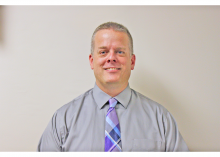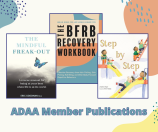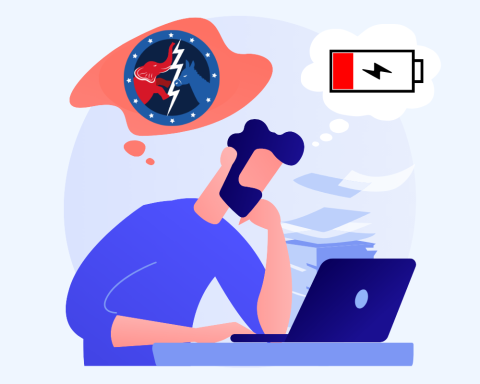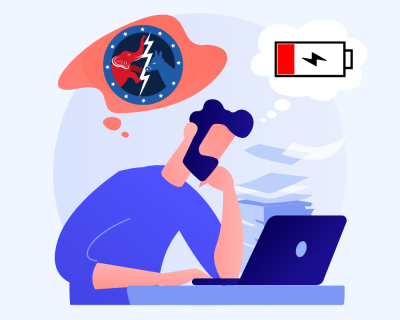New ADAA Member Books: Summer 2024
New ADAA Member Books: Summer 2024
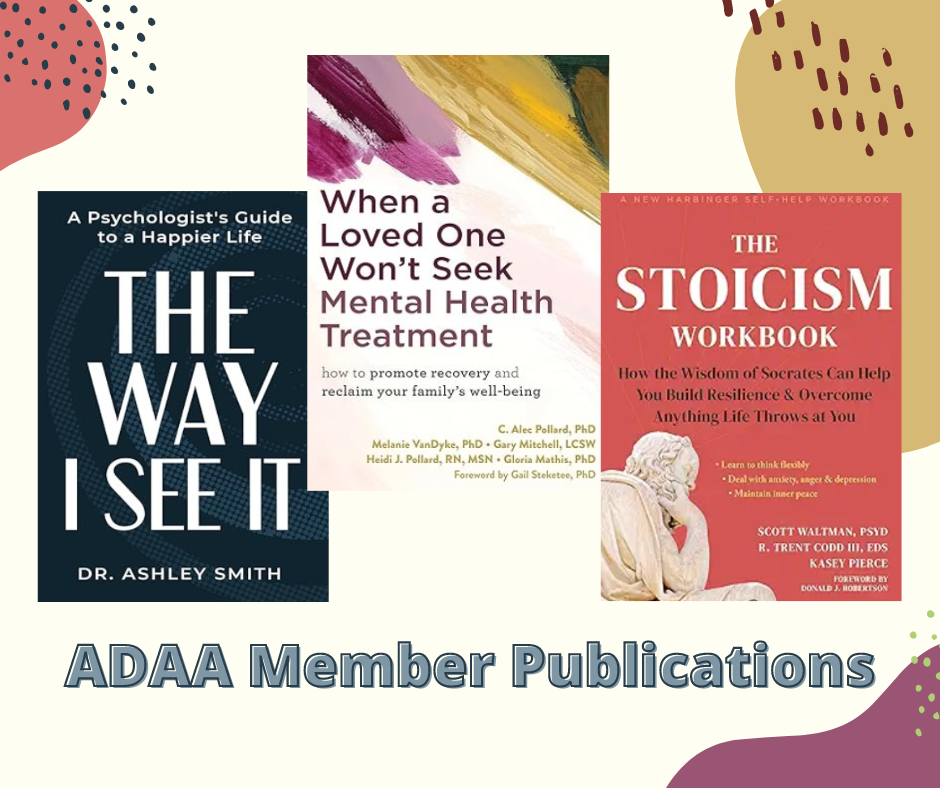
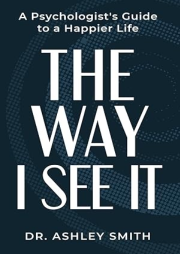
Visually Impaired, ADAA Member Envisions a Book to a Happier Life for Herself & Others
A rare visual impairment does not stop ADAA member Ashley Smith, PhD from seeing clearly when it comes to seeking and creating a happier life, not just for herself but for her clients and readers. Her new book, The Way I See It: A Psychologist’s Guide to a Happier Life, is a product of her own personal experiences as well as her professional knowledge and practice as a clinical psychologist, public speaker, and author.
The co-founder of Peak Mind: The Center for Psychological Strength has experienced loss and adversity but uses her personal journey of worsening eyesight and suffering to embark on a deeper understanding of the science of happiness and the field of life design. Despite having to stop driving because of her condition, Dr. Smith takes the wheel in her new book, determined to learn more and impart wisdom and skills to help others find happiness.
“I was terrified, devastated, and convinced I was destined to be miserable the rest of my life,” Dr. Smith said, “but with my background in clinical psychology and anxiety, and knowing how our minds work and how they shape our life experiences, I began to write.”
The Kansas City-based psychologist told ADAA that she wanted to write something for the public that was accessible and meaningful, allowing her to share her knowledge, insights, and lived experience with the hope of helping others suffer less and learn to lead bold, happy lives.
While publications on happiness, finding pleasure, and the study of contentment abound, Dr. Smith has written a book that stands out for its approach and format. A compilation of short lessons that span a number of topics related to living a good life, The Way I See It is not a guide or step program. Weaving storytelling and science in a conversational and compelling way, Dr. Smith says it’s a book that can be read in any way readers desire – out of order, in one sitting or bits at a time, and full of nuggets of wisdom and insight intended to make a positive impact on their quality of life.
“As a seasoned psychologist as well as an individual who's had to come to terms with a disability,” Dr. Smith said, “I know that it’s not necessarily what happens to us, but what we do as a result – even if it’s just our attitude about it – that matters. We can make our minds work for us.”
Recalling the expression “mind over matter,” The Way I See It reminds us that we cannot control everything, but we can exercise control over something, and become savvy about how our minds work and strive to make them work for us.
According to Dr. Smith, “we can navigate our emotions and relationships with wisdom and skill. We can make the tough choices and do the hard things to carve out a life we are proud of - one that reflects who we are and who we want to be. And in doing all of these things, happiness is the inevitable outcome."
Order The Way I See It here.
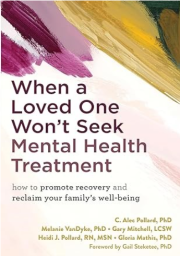
New Book Aims to Improve Lives of Families Affected By Treatment Avoidance
It is often the case that a mental health disorder or challenge doesn’t just affect the individual but that person’s family, friends, and loved ones. This is especially true of children, but even as adults we are interdependent and a mental health disorder in a loved one can take its toll on that person’s entire support network.
ADAA members and mental health professionals Melanie VanDyke, PhD, and C. Alec Pollard, PhD know firsthand how a mental health condition in one person can jeopardize the physical health, psychological well-being, socioeconomic stability, and even happiness of the entire family.
A new book by Dr. Pollard, founding director of the Center for OCD & Anxiety-Related Disorders at Saint Louis Behavioral Medicine Institute, and Dr. VanDyke, a psychologist at the center as well as a clinician at the US Department of Veterans Affairs, focuses on treatment refusal and how to help an individual while helping those who help that individual.
When a Loved One Won’t Seek Mental Health Treatment: How to Promote Recovery and Reclaim Your Family’s Well-Being, also co-authored by Gary Mitchell, LCSW, Heidi Pollard, RN, MSN and Gloria Mathis, PhD, with a foreword by Gail Steketee, PhD, is the first book to describe the Family Well-Being Approach (FWBA), a method developed by the authors for families whose lives are affected by recovery avoidance.
Explaining why efforts to change the “recovery avoider” have failed and how to approach avoidance more effectively, the book aims to prepare families emotionally and strategically to succeed. Dr. Pollard stresses the importance of focusing on what families can control rather than trying to control the person.
“Planning for crises, recapturing the valued activities that families have lost, disentangling their lives from recovery avoidance, and - later - using strategic incentives to promote recovery are all things the family can control,” the former chair of ADAA’s Clinical Advisory Board told ADAA.
Dr. VanDyke agrees with Dr. Pollard that trying to force or enabling the individual won’t work, but families dealing with recovery avoidance often feel trapped. “If they try making life easier for the person, they perpetuate dependency and entitlement,” she said, “If they push for treatment, they are met with resistance or even animosity. Their hope for a better life rests on someone who appears to be making no effort to recover and often when they reach out for professional help they are told nothing can be done unless the person wants help.”
The book is intended for families who have loved ones who refuse treatment or otherwise engage in recovery avoidant behavior. But the authors hope it will also be used by therapists wanting to expand their practice to assist these families who they say are largely ignored by the healthcare system.
“These families are the neglected victims of untreated mental health problems,” said Dr. Pollard, adding that he hopes the book “helps those whose needs have been largely ignored and who would otherwise be left to struggle on their own with the potentially devastating impact of recovery avoidance."
Dr. Van Dyke has a similar hope: that families who are struggling with recovery avoidance find clear, accessible guidance in this book to enhance their relationships and improve their lives.
Order When a Loved One Won’t Seek Mental Health Treatment here.
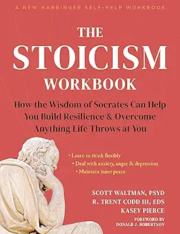
New Workbook Integrates Philosophy of Socrates into Good Mental Health & Well-Being
History’s great philosophers continue to teach us a thing or too. Socrates, in particular, remains one of the most prominent in his influence on modern thinking. The ancient Greek thinker, known as the father of western philosophy, was a proponent of asking and answering the big questions and valued internal examination as a way to improve oneself and one’s quality of life. Stressing self-awareness as well as ethics and morals, Socrates’ undeniable impact on philosophy continues today.
But what of his impact on the field of psychology? And how can he and Stoicism help those suffering with mental health challenges and disorders? One way to find out is to read the new book by ADAA members R. Trent Codd, III, EdS, and Scott Waltman, PsyD, ABPP.
The Stoicism Workbook: How the Wisdom of Socrates Can Help You Build Resilience & Overcome Anything Life Throws at You, with co-author Kasey Pierce, is a self-help book that the authors hope will also be used as a group curriculum or in-session guide for therapists and their clients. The clinicians and specialists in Cognitive Behavioral Therapy (CBT) say the aim of the publication is to have a practical guide or handbook that integrates a philosophy of thought with modern CBT, but that’s not all.
“We believe a lot of people, including those without access to effective psychotherapeutic care or with sub-clinical challenges, can become resilient by adopting a philosophy of living, such as Stoicism,” the authors told ADAA. “Stoicism has been growing in popularity and there is much more to it than the idea that how we think affects how we feel. And this book can help us reach people who are often hard to reach in mental health settings.”
The book, they say, is an opportunity to present Stoicism from a mental wellness and psychological resiliency perspective, highlighting that being stoic or stoicism is not about being emotionless or cold or hard. Rather, that it is possible and highly probable to bounce back from adversity with not only the right mindset but the right tools and using the principles in the book to know what to do when you’re feeling anxious, depressed, stressed or even burned out.
The authors who also wrote Socratic Questioning for Therapists and Counselors together, a more professional book that took a deep dive into ancient philosophy, hope The Stoicism Workbook resonates with a wider audience. Thinking like Socrates isn’t difficult – after all “to know thyself is the beginning of wisdom” – and maintaining inner peace, being flexible, and adapting to difficult situations can improve your overall mental health and well-being.
“One main point of the book is to learn to view life’s purpose as not a never-ending pursuit of fleeting pleasures but instead creating lasting happiness and fulfillment from living a good life,” the authors said.
With the four core virtues of Stoicism being wisdom, courage, justice, and self-control, the workbook reflects on questions like: what kind of person do I want to be and what do I want to make important in my life? And very importantly, knowing that you can’t always control what happens to you or what others do or say, but you can control how you respond.
Order The Stoicism Workbook here.



